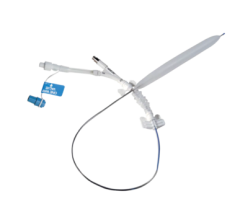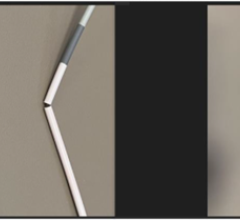
September 28, 2012 — Boston Scientific Corp. announced it has received U.S. Food and Drug Administration (FDA) clearance for the Emerge percutaneous transluminal coronary angioplasty (PTCA) balloon dilatation catheter, and has begun marketing the device in the United States. The Emerge catheter is a next-generation pre-dilatation balloon catheter designed specifically to offer exceptional deliverability for physicians to address challenging lesions in coronary arteries. Both monorail and over-the-wire (OTW) options are available. The Emerge catheter has been commercially available in CE mark countries since earlier this year.
"The Emerge balloon catheter combines Boston Scientific's innovative balloon technologies into a single platform," said J. Tift Mann, III, M.D., Wake Heart and Vascular, Raleigh, N.C. "The result is exceptional deliverability and reliable performance in a wide range of anatomy and lesion types."
The Emerge balloon catheter is available in a wide array of balloon diameters from 1.5 mm up to 4.0 mm, with balloon lengths ranging from 8 mm up to 30 mm. Both the monorail and OTW catheters are available with two distinct shaft technologies designed to provide versatility in addressing different clinical situations. The "Push Technology" (1.5 mm) offers a single-segment inner shaft for enhanced pushability. The "Workhorse Technology" (1.5 mm to 4.0 mm) features a bi-segment inner shaft designed for excellent deliverability without sacrificing push.
"Boston Scientific is committed to delivering innovative technology that enables physicians to improve outcomes for patients undergoing coronary interventions," said Kevin Ballinger, president of the Interventional Cardiology Division at Boston Scientific. "The Emerge balloon catheter further enhances the Boston Scientific portfolio by offering a versatile platform with a range of options and features that allow physicians to select the appropriate balloon based on clinical need."
Coronary artery disease represents the leading cause of death in the United States, accounting for more than 870,000 deaths each year. PTCA balloon dilatation catheters are used in coronary angioplasty and stenting procedures to open arteries blocked by atherosclerosis, which if left untreated can cause angina and heart attack.
For more information: www.bostonscientific.com


 June 13, 2024
June 13, 2024 









